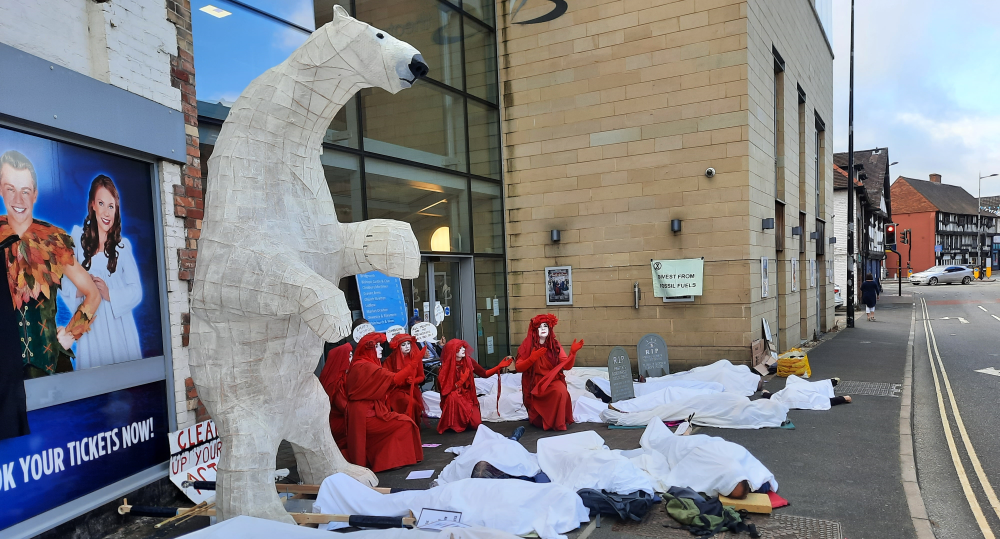It has been a week of announcements. A week of ambitions. And a week of ambiguities. And according to activist Greta Thunberg, COP26 is nothing other than “blah, blah, blah” and has failed. Is that really the case?
It’s rather imperialistic to argue that the countries that are trying to build their per capita wealth and standards of living should now pay for the sins of the most developed countries. The developed countries are responsible for most of the increases in atmospheric carbon. They are richer and have the ability to pay.
But the reliance of countries like India and China on coal for electricity and the lack of commitment from Russia risks swamping small countries. Quite literally.
There have been achievements on forest clearance, on a mixed bag of net zero targets and on financing. But even if countries keep to their pledges, it still doesn’t stack up to keeping global warming to 1.5°C.
One of the first headlines from the week was a commitment to halt and reverse forest loss and land degradation by 2030. Even Brazil, one of the main offenders, signed up. That will be a great achievement if it is delivered. Countries also made a commitment to phase out using coal for electricity generation. That’s a hard ask for countries like Poland, Canada and other countries.
More than 70 countries now have long-term targets on net-zero carbon emissions. But some, like India, will not achieve carbon neutrality until 2070. Its per capita emissions are low, estimated to be 3.2 tonnes of CO2 by 2030, compared to 16.4 tonnes in Australia. But while Australia is predicted to have 29.8 million people by 2030, India is forecast to grow to 1.5bn people. China is expected have just as many people by 2030 and has set a target for net zero by 2060. As economist Dieter Helm commented:
“Whatever the gains in terms of the reduction in poverty, the great economic expansion of China has come at enormous national and global costs to the environment.”
Without big reductions in China, the world cannot win the climate battle.
The USA is aiming for net zero by 2050, as is the UK. Boris Johnson wants Russia to bring its target forward. It might do so. At least three of Scotland’s islands will become carbon neutral by 2040.
We are faced with a patchwork of pledges and targets across the world. More pledges than we had before but not as many and not as stretching as we need.
Global carbon emissions are set to rise by 13.7% by 2030 according to the latest UN analysis. We need a 50% cut by then keep global temperature rise to 1.5C and avoid the catastrophic impacts from climate change. Pledges made before and at COP26 could limit temperature increases to 1.8°C according to the International Energy Agency and 1.9°C according to Climate Resource. Providing that political leaders deliver the pledges we could meet the Paris Agreement’s ambitions to limit global warming to below 2°C, but not to 1.5°C.
That half a degree difference is vital. Barbados Prime Minister Mia Mottley told COP26 that a two degree rise in temperature would be a death sentence for island nations from rising sea levels and more extreme weather. And already, extreme weather events are increasing. Glaciers are melting. Sea levels are rising and pose a threat to the UK, let alone to smaller islands.
Money is needed. The Green Climate Fund was established after a promise made by richer nations at COP15 in Copenhagen in 2009 to provide US$100 billion (£74 billion) a year in climate finance to help developing countries to decarbonise their economies. The fund has never delivered $100bn but at COP26 we were assured by Kerry and by von de Leyen that the target will be achieved next year. Kerry warned that governments couldn’t supply enough money to tackle climate change and private finance would be needed.
Cue the Glasgow Financial Alliance for Net Zero, a coalition of the biggest investors, banks and insurers that control $130 trillion in assets, which said it was committing to use that capital to hit net zero emissions targets in investments by 2050. But there is still work to do to getting commitments and targets for some members of the alliance.
And wherever there are targets, wherever there is money involved there is creative accounting. We can expect reclassification of foreign aid as climate change money. We will witness carbon trading and offsetting going into overdrive. Some commitments will not be delivered. Others will be fudged.
Our priority must be to limit global warning. We will also need extensive mitigation measures. Not just flood prevention measures and protection from excessive heat. We may need to relocate entire populations from low lying islands.
Was Greta right to say COP26 has failed?
She is perhaps half right. There has been welcome progress in the first week. It is not all blah, blah, blah. But the progress is not enough. Nowhere near enough.
This article was first published on Lib Dem Voice.

